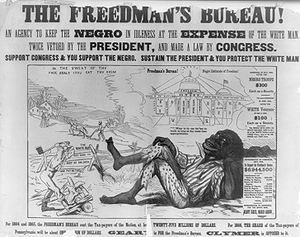Rand Paul and the Hypocrisy of Mainstream Libertarians
Libertarians embrace a worldview trending towards anarchism (or at least government minimalism), a position with which, as a Neo-Gramscian Marxist, I have an abundance of affinity. In fact, on a long enough timeline (where units are measured in centuries anyway), I’ve little doubt that this is where the human condition will trend – presuming we manage not to destroy ourselves in the process. For those of us in the present tense, however, Libertarianism, like Marxism, gets a bad rap for the fact that some of its most visible proponents are either vacuous, dangerous opportunists (Palin being the most obvious example) or else otherwise intelligent individuals who are transparently inconsistent and self-serving.
Case in point of the latter is Dr. Rand Paul, the movement’s latest media darling, who was elected to the Kentucky Senate seat last week. The news outlets and blogosphere are in an unusual flaming accord this week over his recent example of government overreach in the Civil Rights Act of 1964: (WSJ: Paul's Civil-Rights Remarks Ignite Row, Wash Post: Rand Paul comments about civil rights stir controversy, Eugene Robinson: GOP's Tea Party invite might still be in the mail, The Hill: Rand Paul causes Civil Rights Act controversy with desegregation remarks, AP: Rand Paul Is 'Kentucky Fried Candidate' Over Civil Rights Comments, Lexington Herald-Leader: Paul's statements on discrimination stir controversy, NYT: Tea Party Pick Causes Uproar on Civil Rights, Salon: More historic legislation Rand Paul wouldn't have supported, PoliticsDaily: Rand Paul: An Anti-Government Conspiracy Theorist? (h/t Americablog).
If you’ve been asleep at the wheel on this one, Paul’s position is that the act, which covers a wide range of civil rights issues on interstate commerce, is but a single an example of federal intrusion in the individual liberties of business owners to determine the nature of their clientele. In the context of this example, Rand concedes that this would naturally expand to the right refuse service to people of color, gays, Jews, etc. Paul’s continued inability to staunch the blood flow on this kicked the GOP spin machine into overdrive and lead Paul to cancel his appearance on Meet the Press – only the third person in 62 years to do so.
I care far less to what degree Paul may personally be racist than I do in the fact that this degenerative myopia is completely consistent with the Libertarian platform. However persuasive I may find this mode of thought in the abstract, it presumes a fundamental faith in humanity to do the right thing without the force of law. Individual liberty is not an absolute - it comes with the caveat that one person't liberty cannot infringe on anothers. With regards to the Civil Rights Act, we state that you are free to operate a business in our country, but you are not free to restrict your operations based on the color of someone's skin.
Indeed, the universe may trend towards global justice, but it has a long, long way to go. The restaurant owner who hangs a no-blacks sign up in his window will, in the 21st century, probably get run out of (most, though not all) towns by a combination of enlightened objectors and those too embarrassed to wear racism on their sleeve by frequenting a regressive patron. But what about no-gay, no-Democrat, no-punk, no-Catholic policies or the every-more-likely no-Arab policies? Sometimes our laws exist to compel American ideals even when our citizens find them offensive for the simple reason that we share our national identity and don’t want bigots forming an outward part of our cultural landscape.
For the time being, I still manage to disconnect my emotional processes from the issues enough to understand the difference between personaility and ideology, but herein lies the problem – this may be a particularly egregious example of Libertarianism carried to its logical conclusion, but it is nevertheless conssistent with the overall platform. Where the movement’s present incarnation really breaks down is in its outward hypocrisy in preferencing the liberty of commerce over individual or collective liberties. Indeed, lost somewhat in the row over lunch-counter segregation is the fact that Paul also had harsh words for Obama's supposedly ‘un-American’ stance in blaming the oil spill on, well … the company actually responsible for it. In Paul’s universe, the same liberty that allows corporations to escape the regulatory oversight of those who would be affected by disaster should likewise extend to absolving such entities of blame when their self-policing predictably breaks down. As Robert Slayton points out:
Advocates like Dr. Paul claim that they are speaking on behalf of the little guy, against the steam-roller of a large institution like big government. The problem with this claim is that there is another big institution that harms the ordinary citizen in our world, and that is big business. And in that case, libertarians have little to condemn, and thus show their true colors. … So their dirty little secret is out. Libertarians are not really for the little guy, against structures that would grind down our individuality. They're really just right-wingers, pro-business and anti government, the only institution with the power to limit large corporations when they commit abuses. Rand Paul is sincere, but in his blindness and dogmatism, he becomes a shill for big business, not the champion of citizen's rights he claims to be.
Without doubt, we exist in an era where power is increasingly consolidated into the hands of a few multi-national corporations which, unlike government, have no responsibility for social welfare. In the U.S., capitalist malfeasance has been kept in check through a strong judiciary whereas in Europe there is strong regulation. Yet if we are to judge the Libertarian movement by it’s leaders, then we must conclude that it is a facade for what right-wingers have always pushed for – a system of commerce in which neither mode of enforcement remains available to protect citizens from the dark side of the profit motive – a conservative nanny state where the government is expected to stay out of the way - expect when necessary to ensure that capitalist movements are free from civilian oversight. In this manner, it is a disease masquerading as a solution, spouting the ideals of liberty while covertly working to dismatle the very freedoms it's adherents espouse.


![Reblog this post [with Zemanta]](http://img.zemanta.com/reblog_e.png?x-id=9e612c56-d9da-4306-87cb-a41503031824)









Comments
Post new comment